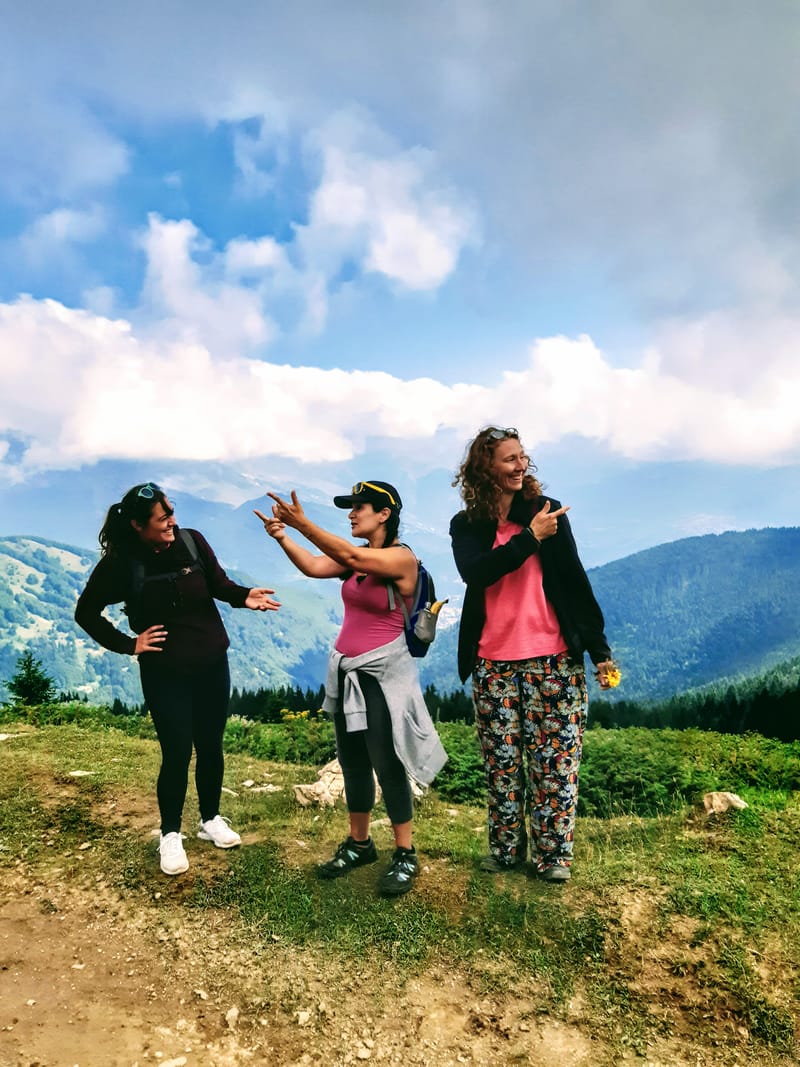5. Outintic

How many are basically pretending to enjoy the normality, striving to match the expectations or a perfect social development path. In order to feel peace with yourself, you need to be IN with yourself, not with everybody else (well, unless you are a manipulative sucker for power and enjoy spreading your will onto people). But is it even possible? To be in peace with yourself, not needing to adjust, adopt and pretend, means you may be excluded from all the guaranteed paths of survival and development that we know, since the environment will now know how to deal with you. You will be pushed out of the shared normality, social environment and natural support circles that arise during a normal life. On the contrary, if you want to stay included in the social context and enjoy the benefits of being a flock creature, you may need to get out of your comfort zone (which is very healthy and a premise for learning), ignore your unknown drives and capacities (which is not good at all). Is that such a dramatic dilemma: lose yourself or lose your place in society. What is the goal worth striving for? And if there is so much pretending and adjustments involved, where is the real me? Where is the safe ground, out or in?
Based on observations of over 5000 persons age 15-65 where around 1/20 would demonstrate this balance walk between out- and in- realms, I would say, the real you may be just there, in an authentic state of feeling as an outsider being included in the community, where lack of certain known expected social competencies are compensated by presence of other certain but unknown and therefore unexpected and unrecognized competences. Regarding these persons themselves, a term Outintic can be introduced indicating high level of presence of deviant competences and an outintic state. Outintic community presents persons aware of her special way of seeing the universe, learning, communicating and interacting with others, with or without knowledge about how this way may be developed.
After years of work with young people in context of informal and non-formal learning, it has become more and more obvious that this dilemma is highly relevant for many youngsters. In each group of our participants regardless their background, ethnic or social culture, there would be these ”different” young people represented. Same feelings of balancing between in and out, same no-expectations mode, same glorious raise of Phoenix when given space and tools for expressing themselves on their own premises. From many talks with colleagues all over Europe and beyond, we could state that this condition of being ”off” while being fine, is a common phenomenon and can point towards both mental ill-heath if not taken care of, and extraordinary career if it does get a proper mentoring and support. Over the last few years we can see a clear raise of cases of neuropsychological conditions like autism and ADD. There we have a big (and growing) group of people who would happily justify change of our views on learning and recognition of competences, if they only had that voice and mandate.
Assumption-free attention towards alternative ”highways” of perception and careers development should certainly be seen as a step towards a new paradigm of education, labor market and society organization. Through this awareness and dedication, deviant competencies becomes a term to use describing the range of yet to discover ”highways”: talents waiting to be matched to fields of science, capacities waiting to be supported and developed by a suitable mentor.
Possession of a deviant set of competences, a different perception of the world, communicating and learning patterns is not a common thing to meet. At least, it used to be rare since there were not that much of a choice if one wants to exist in somehow agreement with the community. Thanks to internet powered globalization and access, communities are not necessarily local anymore. You still want to match and find your flock but today you can literary, find it guided by nothing but few key words. The conditions for development of competencies, recognition and research are extraordinary! Though, perceived as given by todays youngsters for whom wifi has become a new basic need in Maslow’s pyramid…
From habit of access and awareness of diversity in our digital global society, grows awareness and acceptance of own peculiarity. A curious hungry mind searches and finds food; but how ”healthy” this food for mind is? Like a child given freedom to choose foods, seldom will chose broccoli for dinner, why and how will a young mind chose to find challenging pedagogics for own growth? Facing an amazing expanding diversity of competencies, seeing this hunger for recognition and acceptation, what do we do, ”responsible adults”, cooks of the healthy diet? Do we even ask what they like, do we research if they have any food allergies, do we check on how their appetite/motivation for life works? Or we just load broccoli and parsley in from of them on the table in the morning: worked for people before, will work for you now.
Nowadays it gets more and more common to meet a ”special” person aware of own strong and weak sides, special approaches towards learning, communicating and behavior. So common it becomes normal, and we face a raise of acknowledged cases of autism and ADHD among youth and adults. The question is: is it a trend, a pandemic of neuropsychological conditions out there, are we getting better at noticing and articulating those different conditions that we humans possess, or are we as human race evolve and new capacities emerge in order to adjust the changed conditions of our living?


